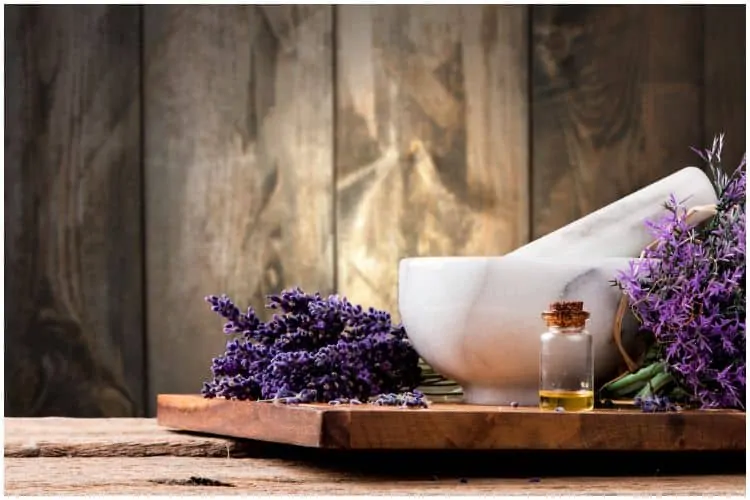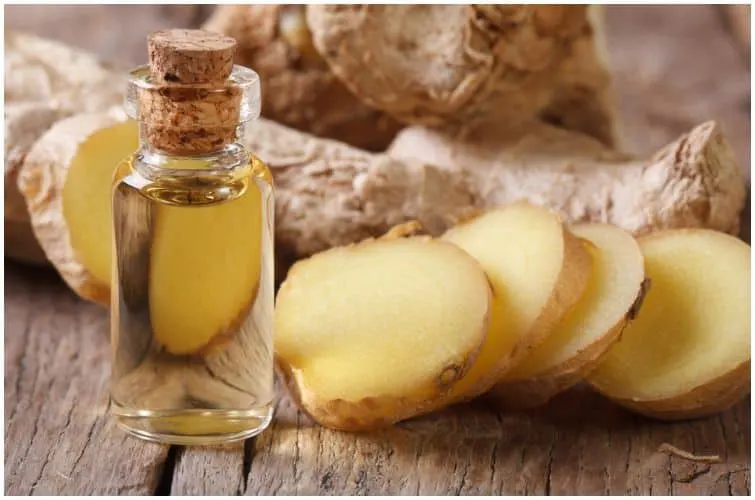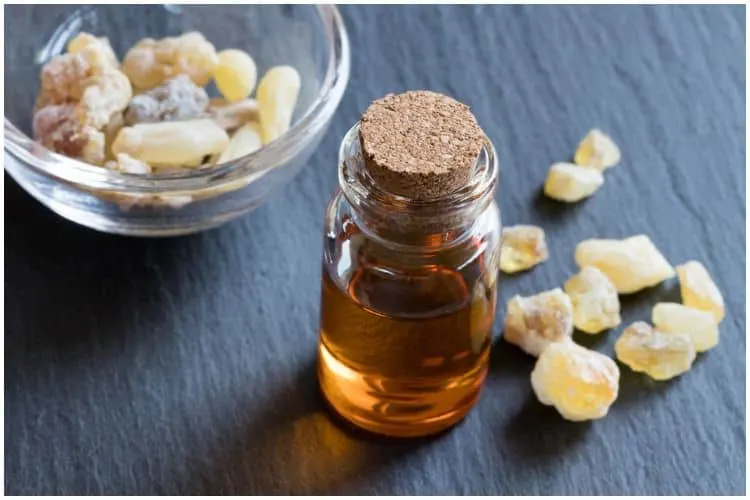Essential Oils For Enlarged Prostate:
Introduction
The prostate is a small walnut-sized gland found only in men.
This gland produces the fluid component of semen.
Prostate fluid is vital for a man’s fertility.
An enlarged prostate (also known as benign prostatic enlargement or benign prostatic hyperplasia) is an increase in the size of the prostate.
BPH is not cancer, and it does not increase the chance of getting prostate cancer.
Symptoms
Common symptoms of benign prostatic hyperplasia include:
- a sudden urge to urinate – you may occasionally leak before you get to the toilet;
- needing to urinate more frequently, particularly at night;
- dribbling urine after you finish urinating;
- difficulty starting to urinate;
- a feeling that your bladder hasn’t emptied correctly;
- a weak flow when you urinate.
Risk Factors
Risk factors for prostate gland enlargement include:
- erectile dysfunction;
- lack of physical exercise;
- medical conditions, like – heart and circulatory disease, obesity, and type 2 diabetes mellitus;
- a family history of benign prostatic enlargement;
- age 40 years and older.
An estimated 15 million men in the United States have symptoms suggestive of prostate gland enlargement, according to the National Institutes of Health.
Approximately 20 percent of men between the ages of 50 and 59 are affected by benign prostatic hyperplasia. Also, up to 70 percent of men over the age of 70 have a BEP.
By the age of 90, about 90 percent of men have an enlarged prostate.
Almost 33 percent of these men will develop symptoms of benign prostatic hyperplasia, which require medical treatment. The main treatments are:
- surgery and other procedures;
- catheters;
- medication;
- lifestyle changes;
Lifestyle changes include:
- no “belly fat;”
- regular moderate physical activity;
- healthy sleeping habits;
- quit smoking tobacco;
- 4 or more servings of vegetables per day;
- the practice of stress reduction methods, like mindfulness meditation;
- a low-fat diet.
Aromatherapy can also help men with prostate problems.
Therefore, Here Is A List Of 11 Essential Oils For Enlarged Prostate & Prostate Health:
1) Frankincense
Frankincense, also referred to as olibanum, comes from the Boswellia genus trees, especially Boswellia carteri and Boswellia sacra.
The health benefits of frankincense essential oil are mostly attributed to its astringent, antiseptic, anti-inflammatory, disinfectant, diuretic, digestive, and expectorant properties.
Moreover, it promotes the feeling of relaxation through its calming aroma as well as it supports the nervous and digestive functioning when taken internally.
2) Oregano
Oregano (scientifical name – Origanum vulgare) is an herb that is native to the Mediterranean, Asia, and Europe.
The main active chemical component of this essential oil is carvacrol, a phenol that has potent antioxidant properties when ingested.
In addition, oregano oil contains oleanolic acids and ursolic acid, which are known to intervene in cell physiology in specific methods.
The anticarcinogenic and antimutagenic properties of oregano essential oil help in the prevention of cancer.
3) Lavender
It is produced from lavender (Lavandula angustifolia), an evergreen shrub that is native to the mountainous Mediterranean regions and northern Africa.
Because of its calming effects, this essential oil can be used in aromatherapy to treat a variety of ailments, especially:
- headaches;
- nervous exhaustion;
- migraines;
- nervous tension;
- confusion;
- prostate problems;
- emotional stress;
- depression;
- restlessness;
- tachycardia.
Tip – in order to induce an energizing effect, you can combine the lavender essential oil with lemon, cypress, pine, grapefruit, basil, ginger, lemongrass, spearmint, rosemary, and bergamot.
4) Peppermint
It is manufactured from the leaves of the peppermint plant (Mentha pipertita), a hybrid of the watermint and spearmint plants, that grows throughout Asia, North America, and Europe.
Peppermint has been a part of the traditional medical practices in Japan and China.
It has potent antiviral and antimicrobial properties, as per a review conducted by the Human Nutrition Research Center on Aging at Tufts University.
Moreover, it can help prevent cell death and DNA damage caused by radiation.
In addition, some studies have concluded that the active compound in peppermint essential oil (menthol) can restrain the growth of prostate cancer.
5) Tsuga
This essential oil is steam distilled from the twigs and needles of the Canadian Hemlock (scientifical name – Tsuga canadensis) conifer tree.
It is usually recommended for:
- respiratory weakness;
- poor circulation;
- muscle spasms;
- infection;
- colds and flu;
- asthma;
- bronchitis;
- aching joints;
- prostate problems;
- muscle aches and pains.
Note – Tsuga essential oil has been recognized as safe by the US Food and Drug Administration, therefore, it is safe to take internally if you like.
6) Rosemary
It is produced from the herb rosemary (botanical name – Rosmarinus officinalis).
Rosemary essential oil has hepatoprotective, anti-microbial, anti-diabetic, antioxidant, and anti-inflammatory properties.
It has an antioxidant ORAC value of 33,000, which is the same free radical-fighting power as the goji berries.
Moreover, carnosol is a phenolic diterpene found in this essential oil and is most likely responsible for its powerful antioxidant abilities.
Carnosol has anti-cancer effects in breast, skin, prostate, blood, and colon cancer, as per a 2017 article that was issued in the journal Cancer Letters.
7) Geranium
Geranium essential oil is distilled from the leaves of the Pelargonium graveolens plant. This plant is native to South Africa.
This oil can provide relief from nerve disorders, like rheumatic arthritis.
Plus, it is effective in treating chronic nervousness and anxiety.
Its medicinal properties can also help reduce the signs of aging as well as it supports your immune system.
ALSO READ: Facts About Tay-Sachs Disease
8) Sage
It is made from the steam-distilled leaves of the herb sage (scientifical name – Salvia Officinalis).
The main constituents of sage essential oil are – camphor, cineole, borneol, and a-pinene.
It is helpful for supporting the reproductive, respiratory, and nervous systems.
9) Ginger
Ginger essential oil is extracted from ginger, a perennial plant that is native to Southern Asia and is part of the Zingiberaceae family.
It is a natural antibacterial, antiseptic, and anti-inflammatory which can be used in numerous ways as a natural remedy.
The ginger essential oil has both natural analgesic and anti-inflammatory properties, which help to reduce swelling and ease any type of pain.
ALSO READ: Yeast Infection vs Chlamydia
10) Thyme
It is derived from thyme (scientific name – Thymus vulgaris), a perennial herb from the mint family.
Thyme essential oil has cardiac, diuretic, antispasmodic, antirheumatic, expectorant, hypertensive, bechic, carminative, antiseptic, cicatrisant, emenagogue, bactericidal, vermifuge, and tonic properties.
It assists in treating:
- lack of sleep associated with digestive disorders;
- headache;
- nausea;
- stomach cramps;
- reproductive system problems;
- stomach upset;
- heartburn;
- gastric formation;
- dyspepsia.
11) Myrrh
It is made from dried resins of trees in the genus Commiphora by steam distillation.
It was held high in Traditional Chinese Medicine as a herb that can eliminate stagnant blood from the uterus.
The main components of Myrrh essential oil include – cadinene, limonene, alpha-pinene, cresol, eugenol, formic acid, acetic acid, and sesquiterpenes.
It supports the healing of:
- candida;
- fungal infections;
- diarrhea;
- bronchitis;
- bacterial infections;
- dermatitis;
- mouth ulcers;
- wounds.
ALSO READ: Interesting Facts About Syphilis
Sources https://www.sciencedaily.com/releases/2017/03/170308081100.htm http://www.berkeleywellness.com/supplements/herbal-supplements/article/can-herbs-shrink-enlarged-prostate

